My Comedy Career: Andrew McGibbon
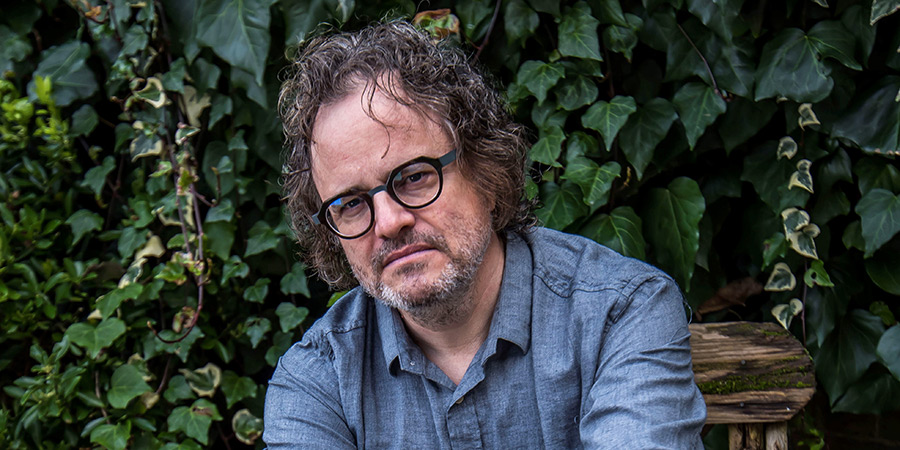
As When Alan Met Ray, a Radio 4 comedy drama focusing on Galton & Simpson, arrives on BBC Sounds, we talk to producer and co-writer Andrew McGibbon. His production company, Curtains For Radio, has won a number of awards, including a Special Mention at the Prix Europa.
Tell us what you do in your job.
I'm a producer who writes and directs comedy and drama audio as well as content for TV, radio and streamers. We also make audio arts and factual programmes.
I work with stand-ups, actors, writers, musicians - anyone who makes me laugh and has a sense of narrative about their work.
Most recently, I've been writing (with Ian Pearce) and directing Paul Whitehouse, Harry Enfield, Don Gilet, Phil Cornwell and Simon Greenall in the new one-off Radio 4 comedy drama When Alan Met Ray. It's about how comedy legends Galton & Simpson first met in a Surrey TB sanatorium in 1947. They spent nearly four years incarcerated, trying to rid themselves of the infection, for which there was at that time no cure.
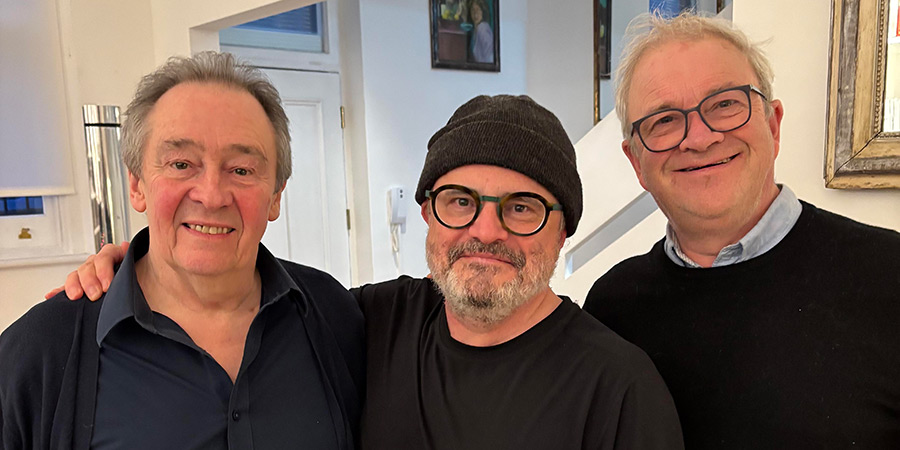
I work in audio comedy primarily because there is a simple flow of truth and narrative to the listener that film or TV comedy can struggle to achieve. Audio comedy often contain nuances, subtlety and revelatory undertones that would require fabulous budgets to achieve in film or on TV. In a world currently riven with polarised speech content, audio comedy can connect subversive ideas to listeners through humour that 'echo chamber' podcasts, even funny ones, cannot do. In these times the more surreal and child-like the comedy the better the chance the truth may settle on ears that might not be receptive to it ordinarily.
I tend to prefer working in the more surreal, character driven or music end of comedy, though not exclusively.
I am a fan of the great radio shows like Just A Minute, The News Quiz and the brilliantly surreal I'm Sorry I Haven't A Clue. Sometimes audiences need a bit more time to bed down with characters or an unusual set up, but the trick is to make sure the jokes are funny, truthful and come out of the narrative no matter how surreal or complex.
How did you first get involved in the comedy industry?

Initially, I started creating and performing characters on Radio 1 at the weekend and on the weekday breakfast show from 1994 - 1998. From there, I started appearing on Radio 4 show Loose Ends.
After that, the first show I wrote for the BBC was called Routemasters and starred Amanda Donohoe in the lead role as an art thief. It was about a time travelling London Routemaster bus. It got such a great reaction at the BBC, I was commissioned to write - with Nick Romero - a musical comedy entitled I Think I've Got A Problem, which starred Suggs as a man who wakes up one morning to find he has a 50s' big band living his head who can't stop making him burst into song, often inappropriately... and Bob Monkhouse as his rhyming psychiatrist. It went down very well and ran for two series. It was great working with both Bob and Suggs. Those two shows got me off to a pretty good start.
What key skills do you need to be able to do your job well?
Listening, reading, hard-working, familiarity with editing software (Pro Tools, Reaper, Logic Audi), patience, keen on ideas - no matter how whacky they may be - and tolerating late hours.
You will work harder than you are being paid a lot of the time. Directing actors is a joy but to gain that skill you have to throw yourself in at the deep end. It's the white water rafting of entertainment work, and you really need to have planned out every scene in detail to give you confidence. Then, when improvisation happens, you're not panicking but delighted at the subversion which might even be funnier than the script at that point.
The most important quality is openness - to writers, actors, commissioning editors and networks. I haven't met anyone who doesn't want the show you're working on to be a success and any comedy outing is always a truly collective effort.
What has been your biggest career achievement to date?
Certainly, I Think I've Got A Problem is up there with many other shows I've made. There were so many moving parts! The surreal concept, the songs and the sound design all demanded my best effort. I learnt that nothing is off the table when it comes to true creativity but always check with the commissioning editor first, especially if certain scenes are going to be expensive to do!
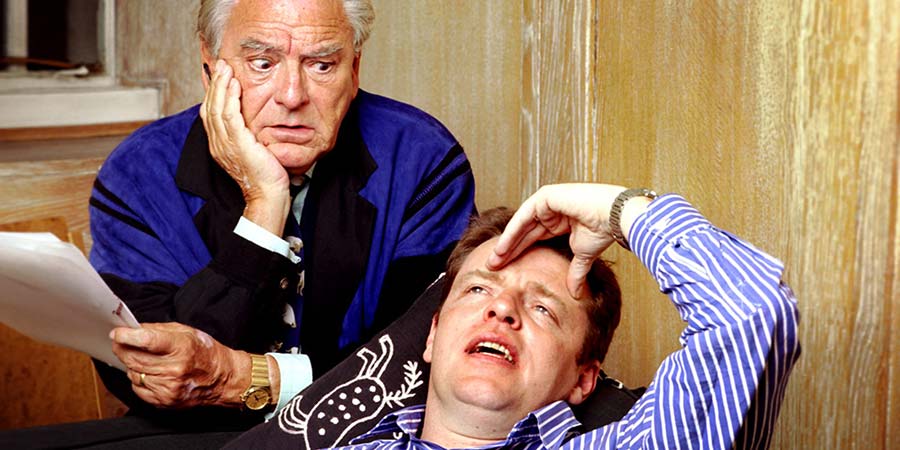
One series I really enjoyed making was The Cornwell Estate starring Phil Cornwell from Stella Street. We filmed a series for the BBC. It was quite a ride with a great cast including Daisy Haggard (Back To Life), Jill Halfpenny (The Long Shadow, Babylon), Tony Gardner (My Parents Are Aliens), Ricky Champ (Game Of Thrones) and the late Roger Lloyd Pack (Only Fools And Horses). Outstanding performances from everyone with a fair amount of superb improvisation and a true joy to make.
And what has been the biggest challenge/disappointment?
The biggest disappointment was a six-part 6:30 comedy Nick and I wrote entitled Not Today, Thank You, for Radio 4. It starred Harry Shearer and Sheridan Smith as tenants in a big house owned by a jaded radio star. It tested to destruction my theory that narrative, character stories written against the backdrop of a surreal or strange situation don't get the best reaction from live audiences, unfamiliar with the work. A combination of different elements contributed to it failing to coalesce as a high-laughs show. It would probably have worked better in a late-night slot.
I overcame the adversity by producing other writers' shows and applying my experience to them. I realised that, with the best will in the world, audiences won't come with you if they're uncertain about when to laugh. It's a harsh truth but a valuable one. This is why producers in the past were encouraged by networks to use laugh tracks. It ensured that no joke was left unlaughed at!
Talk us through a typical day.
Today - it's a Sunday - I have been replacing pieces of dialogue across a number of scenes with lines we had to rewrite as new facts came to light in the story we are working on. Work is everything but so is my home life. Sometimes there is conflict between the two. I have always tried to maintain a work life balance and succeed for the most part. However, my wife knows that some projects are more demanding than others!
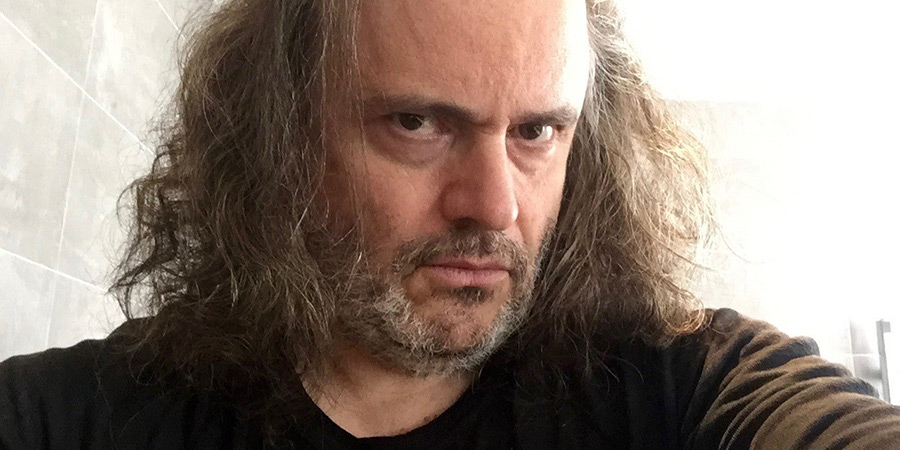
Tell us a trick/secret/resource that you use to make your job quicker/easier.
Do as much 'housework' at the beginning of the project as possible. Have a clear outline of the script in front of you at all times. Avoid making very complicated programme edits, if possible, as these will overwhelm you by the time you come to mix them. Try to name everything before you record or add special effects and keep the recording process straightforward, grouping tracks according to their content - i.e. cast stereo, additional cast overdubs, special effects, music etc. By being disciplined at the beginning you'll be able to edit comfortably without wasting valuable time searching for rogue tracks. This discipline is especially important for sound design as you might have many tracks in operation across a scene.
How are you paid?
I'm a company director so I get a salary as a full-time producer.
If you could change one thing about the comedy industry, what would it be?
It seems obvious but there's more to comedy than just stand-up. Having said that, there is a movement back toward sketch shows so maybe change is afoot?
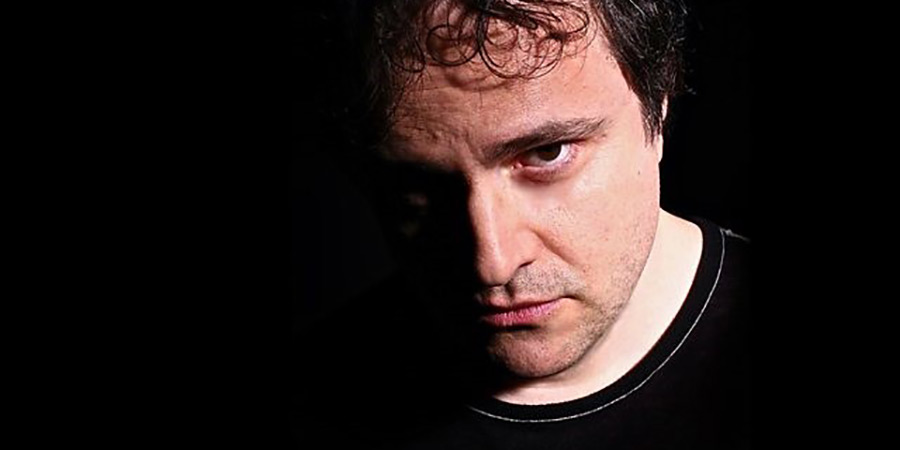
What tips would you give for anyone looking to work in your area of the industry?
If comedy is something you really want to do or a field you feel destined to work in, then, unless you are the daughter or son of a comedy eminence grise, you will have to get in through the fanlight window of the entertainment world. However, be smart with your approach. Putting out a YouTube video and hoping for calls won't work. You have to push all the socials, meet other people in the industry and befriend them with humility, charm and a plan. Make sure they remember you. You only need one person to do that when they're looking for an assistant and you'll be in.
Most important however - have a plan and a pathway to success. Write down, "Radio 4 show" in four years, "Have I Got News For You" in seven, "your own show" in ten. It can take that long, and you'll need the time to hone your style, making it original and bullet proof.
And make sure you get to see the people who can action your career. Agents, promoters, producers. Everyone likes to see new comedians. Learn to take rejection well and listen very closely to advice. Finally, never turn down work. One of the ways that Jimmy Carr became so famous and successful was by performing his unique stand-up in every venue around the country. This is how people get to know who you are. You, appearing in a comedy pub hundreds of miles from where you live, means you care about the people you've come all that way to entertain. I guarantee they won't forget you... unless you bomb but they'll still appreciate you came all that way and probably remember you even more!
When Alan Met Ray is on BBC Sounds
This article is provided for free as part of BCG Pro.
Subscribe now for exclusive features, insight, learning materials, opportunities and other services for comedy creators.


